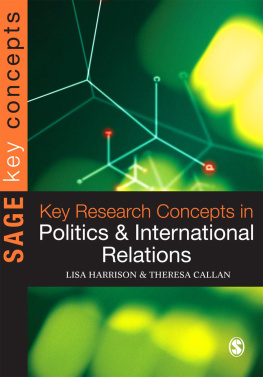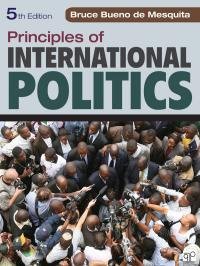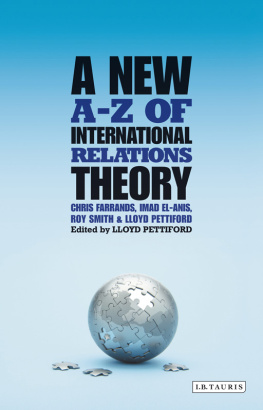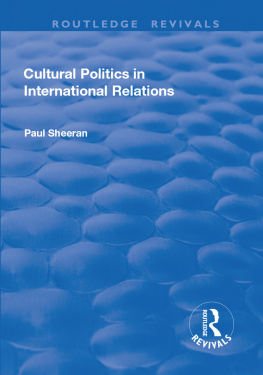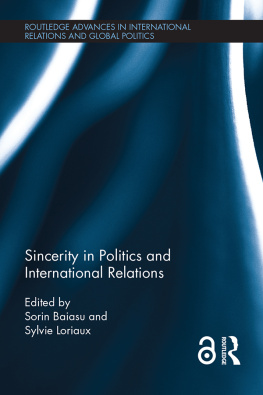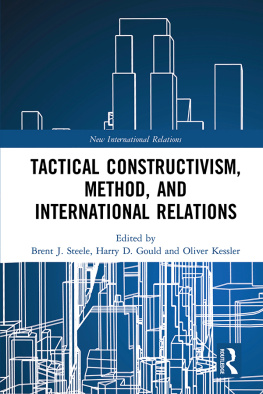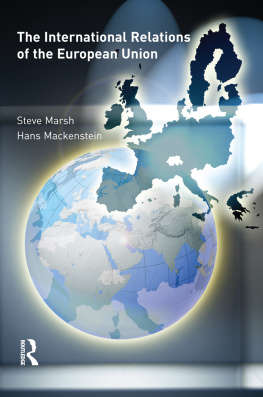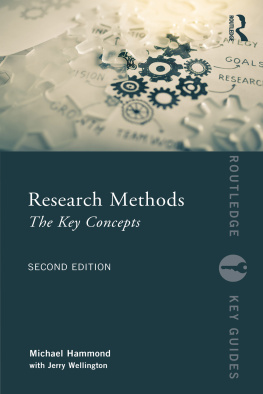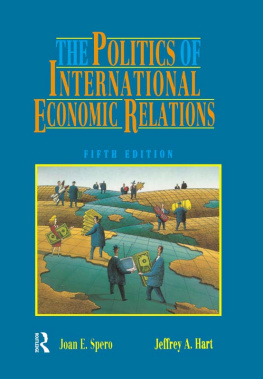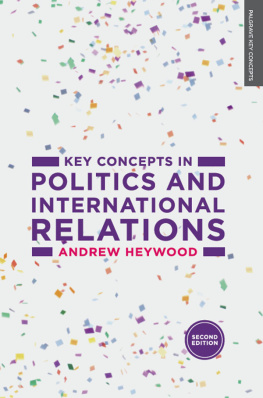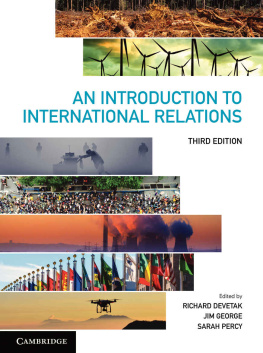Recent volumes include:
Key Concepts in International Relations
Thomas Diez, Ingvild Bode, Aleksandra Fernandes da Costa
Key Concepts in Governance
Mark Bevir
Key Concepts in Political Communication
Darren G. Lilleker
Key Concepts in Classical Social Theory
Alex Law
Key Concepts in Community Studies
Tony Blackshaw
Key Concepts in Sociology
Peter Braham
Key Concepts in Media and Communications
Paul Jones and David Holmes
The SAGE Key Concepts series provides students with accessible and authoritative knowledge of the essential topics in a variety of disciplines. Cross-referenced throughout, the format encourages critical evaluation through understanding. Written by experienced and respected academics, the books are indispensable study aids and guides to comprehension.
SAGE Publications Ltd
1 Oliver's Yard
55 City Road
London EC1Y 1SP
SAGE Publications Inc.
2455 Teller Road
Thousand Oaks, California 91320
SAGE Publications India Pvt Ltd
B 1/I 1 Mohan Cooperative Industrial Area
Mathura Road
New Delhi 110 044
SAGE Publications Asia-Pacific Pte Ltd
3 Church Street
#10-04 Samsung Hub
Singapore 049483
Lisa Harrison and Theresa Callan with Jamie Munn 2013
First published 2013
Apart from any fair dealing for the purposes of research or private study, or criticism or review, as permitted under the Copyright, Designs and Patents Act, 1988, this publication may be reproduced, stored or transmitted in any form, or by any means, only with the prior permission in writing of the publishers, or in the case of reprographic reproduction, in accordance with the terms of licences issued by the Copyright Licensing Agency. Enquiries concerning reproduction outside those terms should be sent to the publishers.
Library of Congress Control Number: 2012938114
British Library Cataloguing in Publication data
A catalogue record for this book is available from the British Library
ISBN 978-1-4129-1184-9
ISBN 978-1-4129-1185-6 (pbk)
Editor: Natalie Aguilera
Editorial assistant: James Piper
Production editor: Katie Forsythe
Copyeditor: Roza El-Eini
Proofreader: Clare Weaver
Marketing manager: Sally Ransom
Typeset by: C&M Digitals (P) Ltd, Chennai, India
Printed in India at Replika Press, Pvt Ltd
About the Authors
Lisa Harrisonis a political scientist who specializes in researching electoral politics in the UK, and producing student-focused materials for political research methods. She has published in journals such as
Political Quarterly,
Parliamentary Affairs and
The Journal of Legislative Studies and is a regular commentator in the media. Her interest in teaching and learning issues in politics has led to a number of publications. For several years she has been a member of the Political Studies Association UK Executive Committee and is a passionate advocate of the study, and clear communication, of politics as an academic discipline.Theresa Callanis a political scientist who specializes in security politics, specifically ethnic conflict and post-conflict peacebuilding, and international relations theory, specifically realist perspectives. She also teaches and develops material on research methods and study skills, with a special interest in ontological questions and grammar (much to the delight of her students). A member of the Political Studies Association and the British International Studies Association, she is dedicated to the teaching of politics in an inclusive, engaged way and has a special distaste for osbscurantist practices.
Introduction
This book has been written as a contribution to the SAGE Key Concepts series, but, more importantly for us, we have produced something that we hope students will find an important resource throughout their studies.
Research methods are rarely the key reason for people choosing to study Politics or International Relations, yet they are recognized as a crucial element in any such degree. Just as we would expect to learn about political theory and explore examples of political case studies, we recognize that good graduates need to have a toolkit of skills to assist in answering Who?, What?, Where? and When? questions.
The discipline of Politics was lamentably slow in explicitly embedding research methods into the curriculum or providing suitable texts and guides in comparison to subjects such as Psychology and Sociology (and International Relations even more so!). Thankfully, this began to change in the 1990s and there are some excellent political research methods textbooks that take students through the process of research many of which we reference.
By producing a Key Concepts guide, we have attempted to do something slightly different. We have focused on commonly employed concepts that students often struggle to understand and, at times, misuse. For each concept, we offer a succinct explanation that is cross-referenced to related concepts. In order to escape some of the dryness often associated with political research methods we also, where appropriate, signpost the reader towards studies that engage with the concept. In doing so we wanted to show that what we know about politics and international relations cannot be explained without understanding the research process by means of which knowledge is generated. A fundamental reason why we disagree about political explanations is because we ask different questions in different ways. Political researchers privilege different methodologies and methods we do not make judgements here about which are better or best, but we do believe that by recognizing such differences we develop a clearer understanding of why competing arguments survive and thrive.
Each concept is focused and intended to be illustrative. We cross-reference other concepts where possible and supplement each entry with two types of bibliography. Further reading will take you to sources that explore the concept in further detail. Examples feature published research that engages with the concept to some degree to us these are exemplars of research in the fields of politics and international relations as they are explicit in raising methodological issues emerging from the research process (either intentionally or accidentally).
Inevitably in preparing a text of this nature we have not been able to cover every concept apologies if you are seeking something we chose not to include. The content was guided by proposal reviewers and our own experiences of teaching we have found that students are often baffled by the chosen key concepts in terms of both their meaning and application.
We are grateful for Dr Jamie Munn's early input (regarding the concepts of action research, case studies, feminism, narratives, positivism and post-positivism), in addition to those colleagues, family, friends and supportive staff at SAGE who have all helped in seeing this project through to completion.

